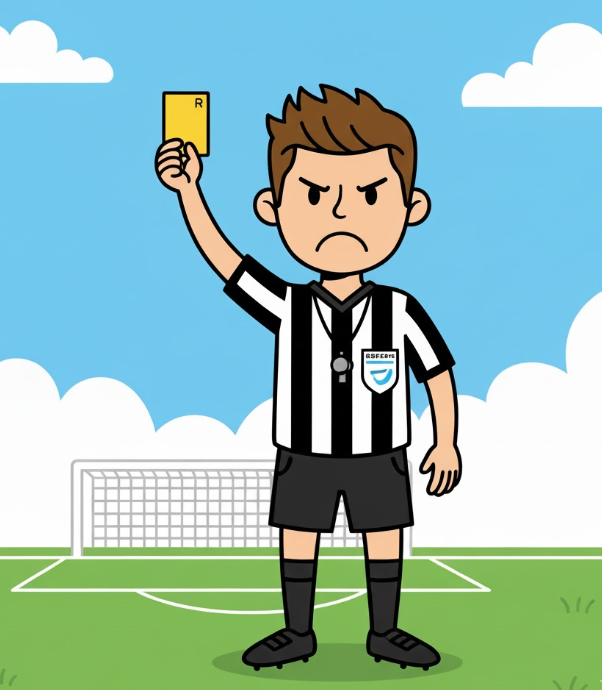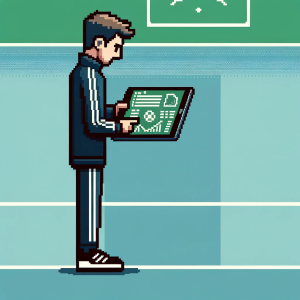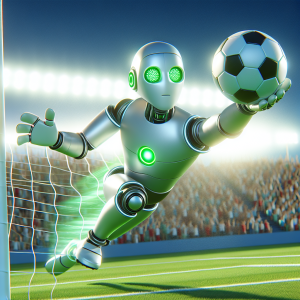
Fit Ref, Sharp Mind: How Conditioning Shapes Referee Decision-Making
It’s the 89th minute. Two players collide just inside the box. The crowd roars. The referee has seconds to decide—penalty or play on? That split-second judgment can define a match, and according to new research from the University of Granada, the accuracy of that call may depend on how much time the referee spent in the gym.
A 2023 study published in Heliyon found that referees with higher levels of physical fitness—particularly strength and speed—make more accurate decisions throughout matches. The findings highlight something every coach and club can learn from: physical fatigue clouds judgment, not just for refs but for players and coaches too.
The Study in Brief
Researchers followed 22 national-level referees in Spain, analyzing their:
- Fitness test results (40-meter sprints and Yo-Yo endurance runs),
- Weekly training routines (hours spent on strength, speed, and resistance work),
- Performance in matches (distance covered and correct vs. incorrect calls).
The refs’ decision-making was evaluated through a simulated Video Assistant Referee (VAR) setup, where trained officials reviewed yellow cards, red cards, penalties, and goal situations.
The results were striking:
- Refs with stronger fitness scores covered more ground per match.
- Strength and speed training time were associated with predicted success in decision-making (ρ = 0.91 and 0.73, respectively).
- In the first half, refs made the correct call about 44% of the time; in the second half, that rose to 59%—suggesting that conditioning helps sustain concentration as fatigue sets in.
In short: Fitter refs made better calls, for longer.
Why This Matters for Everyone on the Pitch
Referees are often the forgotten athletes of the game. They run up to 13 kilometers per match, with bursts of sprinting making up nearly 8% of their actions. They must stay within a few meters of every play, under intense mental pressure, for 90 minutes straight.
But this isn’t just a lesson for officials. Every player and coach can take note: the same physical and cognitive decline that affects referees late in matches also hits midfielders missing tackles, or coaches making reactive substitutions instead of planned ones.
As the study’s authors note, “Physical condition moderates decision-making.” That means fatigue doesn’t just slow your legs—it clouds your brain.
4 Ways to Apply These Findings in Your Club
- Train for Decision Fatigue
- Late-match mistakes often stem from exhaustion. End practices with game-speed decision drills: quick passes, small-sided games, or situational scrimmages.
- For refs and players alike, simulate stress—think “tired mind, sharp decision.”
- Prioritize Strength and Speed
- Strength and sprint training weren’t just correlated with better decisions—they predicted them. Coaches should treat these as core components of referee and player development, not add-ons.
- Track Fitness Like You Track Tactics
- Clubs should integrate GPS and heart-rate data not only for players but also for referees in training camps and tournaments. Monitoring distance and recovery can reveal when decision quality is most at risk.
- Protect the Final Minutes
- The study found more referee errors (and likely more fatigue) near the end of matches. Coaches can adjust by rotating high-intensity positions, emphasizing recovery, and planning subs strategically around minute 75.
Beyond Referees: The Psychology of Fatigue
Cognitive science backs the study’s findings. As fatigue builds, attention narrows and perception falters. It’s not that referees—or players—don’t know the right decision; they’re simply too drained to process cues quickly.
Top-level officiating bodies like UEFA and FIFA already require Yo-Yo and sprint tests to ensure physical readiness. This research provides the why behind that policy: fitness is fairness. A fitter referee isn’t just faster—they’re more accurate, more consistent, and better able to handle pressure from fans, players, and the clock.
Your Turn to Kick It Off
If you’re a coach or referee instructor:
- How do you train for late-game focus?
- Do your strength and conditioning programs reflect the mental demands of decision-making?
- How could your club integrate fitness and cognition testing together?



